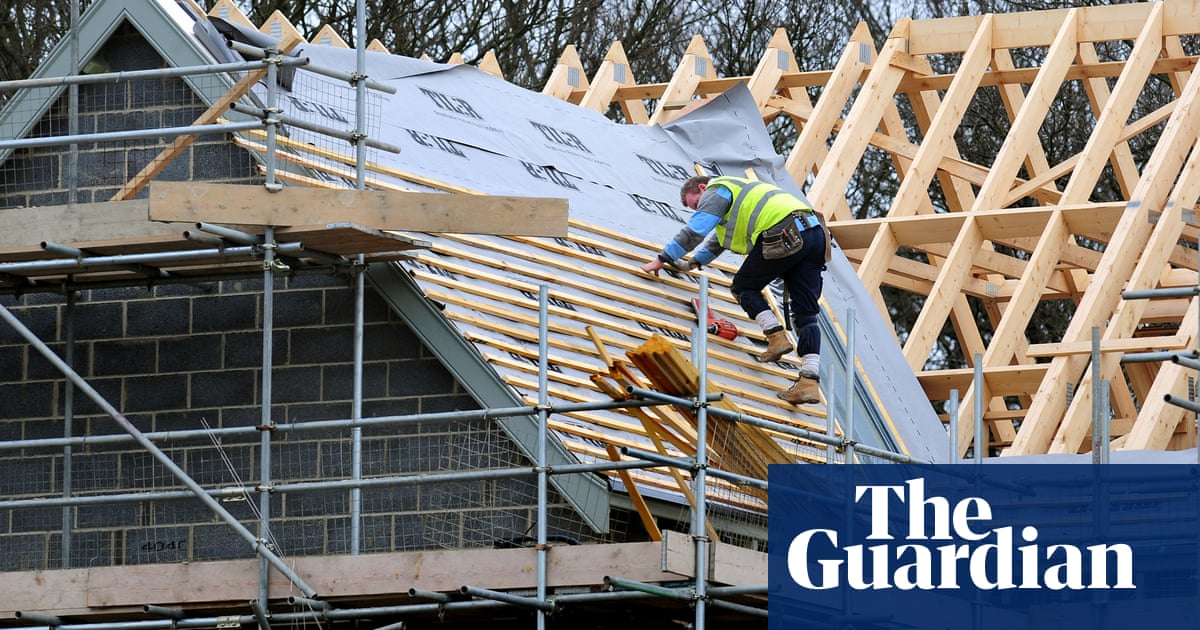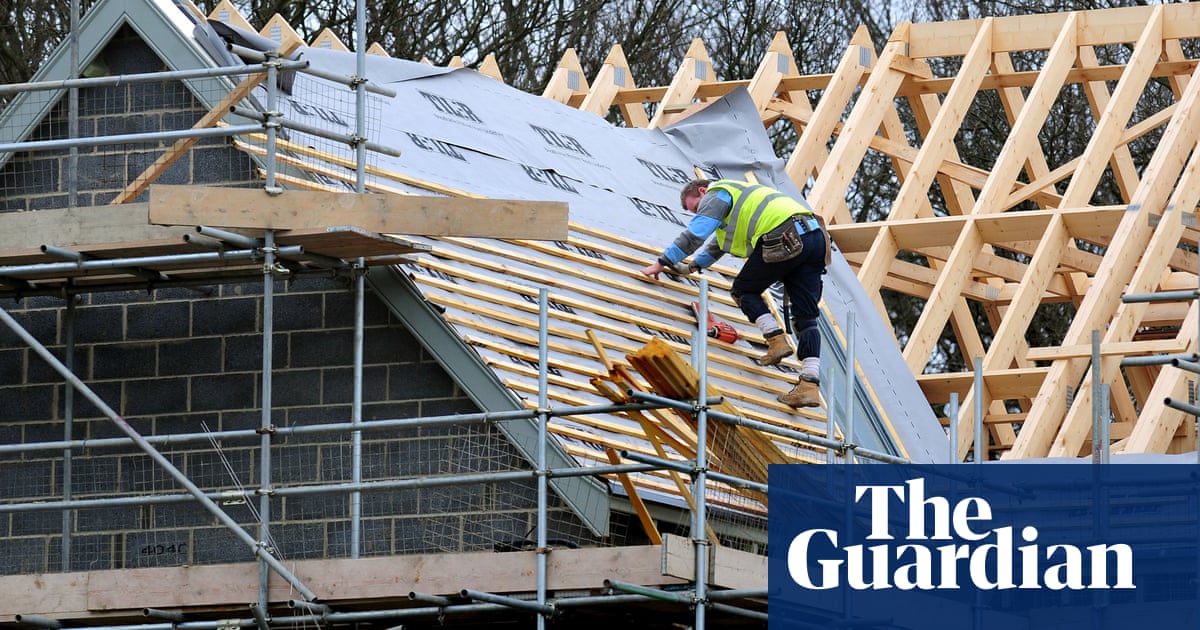
A slump in the building of new homes across the UK in September triggered the biggest fall in construction activity since May 2020, early in the Covid pandemic, according to a closely watched survey.
Engineering and infrastructure projects also suffered a sharp fall in activity that was partly blamed on the government pausing work on the HS2 rail link in the summer, before Rishi Sunak’s decision at the Conservative party conference to cancel construction of the leg between Birmingham and Manchester.
The latest S&P Global/CIPS construction purchasing managers’ index showed a score of 45.0 in September, a steep drop from 50.8 in August. A score above 50 indicates that output has grown.
Max Jones, the director of Lloyds Bank’s infrastructure and construction team, said stopping HS2 – the biggest infrastructure project in the UK – at Birmingham “will be of concern to many contractors that have developed long-term plans based on the opportunities this would bring”.
Jones added that firms’ long-term prospects remained clouded in uncertainty, but that they were “agile and will pivot to identify new opportunities” from the £36bn that the government has identified for transport projects in the north and the Midlands.
S&P said total new business received by construction companies decreased for the third time in the past four months during September.
“Moreover, the rate of decline was the steepest seen since May 2020. Construction companies typically cited sluggish demand conditions and a severe drag on new orders from reduced workloads in the residential building sector,” the survey said.
A separate index for residential work fell to 38.1, which was “by far the worst-performing area of construction output during September, followed by civil engineering activity at 45.7”, the report said.
“Aside from the pandemic, the latest fall in housing activity was the steepest since April 2009. Survey respondents widely commented on cutbacks to housebuilding projects amid rising borrowing costs and weak demand conditions.”
Samuel Tombs, the chief UK economist at Pantheon Macroeconomics, said the industry was going through a bad patch but other indicators showed it was likely to recover.
“The modest decline in the future activity index to 61.9 in September, from 62.6 in August, suggests that most businesses do not expect demand to fall further over the next 12 months,” he said.
The jobs index also remained above the 50 mark, at 52, “which also indicates that builders expect the recent drop in activity to be just a blip,” he said.
Materials have become cheaper and easier to source in the last nine months, the survey said. Interest rates, which have limited buyer activity in the residential sector, have probably plateaued.
“Accordingly, builders should be able to capitalise on a recovery in demand next year, when borrowing costs likely will be falling,” Tombs added.
The gloom in the construction industry was reflected at the French train manufacturer Alstom, an HS2 supplier.
Shares in the company, which has a factory in Derby, fell by 35% on Thursday morning after it cut its cashflow forecasts.
It blamed the cuts on inventory buildup and delivery delays in the US and Europe, and delays in the UK in completing the Aventra programme, an electric-train project that it took on with the purchase two years ago of the Canadian company Bombardier Transportation.
Last month it emerged that thousands of jobs at the Alstom train factory in Derby could be under threat as a result of delays in the production of HS2 trains.












